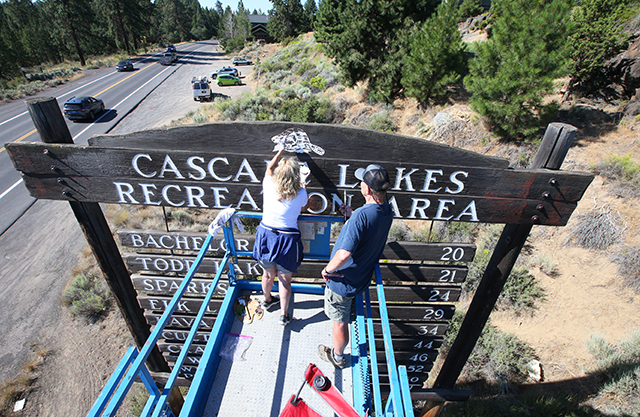Crook County backtracks on bonds
Published 5:00 am Wednesday, March 24, 2010
The Crook County Court used an obscure section of county code to help a local rancher develop his land last October, despite concerns of favoritism. Now, after another developer expressed interest in the same deal, county officials are trying to wipe the code from the books.
Dave Molony, of Scappoose, who is developing two subdivisions in Crook County, said that when he heard the county had issued a bond to help a local rancher, he asked for the same treatment. That was in November. In January, the court decided the code was too convoluted to use again and recommended removing it. Molony said he’s still waiting to hear from the county court on whether he could be considered for a personal bond.
Trending
Crook County officials aided the Breese family, despite opposition from a county commissioner and locals who claimed the court was playing favorites.
“(Judge Mike) McCabe and (Ken) Fahlgren went out of their way to give bonding to the Breese family, and when I applied for the same bonding in November, well, here it is March, and we’ve heard nothing positive,” said Molony. “Now we hear they are trying to change the laws so the same laws would not apply to me or any other developer.”
Commissioner Lynn Lundquist said the court shouldn’t be in the position of issuing bonds and made a mistake giving the Breese family one. He was the only commissioner to vote against giving the Breese family a personal bond so the family could finish the infrastructure on its property and start selling lots.
Lundquist said he understands where Molony is coming from, but it doesn’t change his position.
“Yes, you should treat everyone the same; however we change the law as time goes on.
“For example, take land use, when I bought this (ranch) there were certain things I could do but the law has since changed,” Lundquist said.
Trending
“Two wrongs don’t make a right,” he said.
Molony said if the commissioners remove the code from the books, he won’t be able to sell his lots and will have to wait for the market to change. He believes finishing paving a road and digging some wells would create about 10 jobs.
In order to sell lots in Crook County, the code requires the infrastructure be finished or the developer post a bond assuring the work will eventually be completed. Doug Breese and his family subdivided a section of their ranch into 10 lots. Usually, the developer goes through an insurance agency or puts enough money in the bank as collateral. But Breese Ranch LLC quickly found an insurance agency wouldn’t give it a surety bond, and the family didn’t have enough money to put up as collateral.
So the Crook County Court decided to help the longtime local rancher by giving him a personal bond, guaranteeing the work will eventually be completed.
The Breeses can start selling their lots without completing the infrastructure, and the county is the one on the hook if the work isn’t complete. The money to complete the work will come from the sold lots.
Lundquist opposed the move, but McCabe and Fahlgren supported it.
At the time, Fahlgren said it was an effort to help someone during a difficult economic time.
McCabe said the county wouldn’t lose money. The Breeses had about $175,000 worth of work to be done. The county put a trust deed on five lots, which are appraised at $585,000. If the work isn’t done, the county can take the property, sell it and create funds for the construction of infrastructure on the lots.
“I had mixed feelings, since we let the horse out of the barn to start with, shouldn’t we let everyone do it from that point on? But I believe it’s such a bad policy that it needed to be changed,” Lundquist said.
“It’s ridiculous, because it puts the county in the land development and banking business and that’s not a role for government,” he said.
Molony still has hope; the Crook County Planning Commission has recommended the court keep the option as a tool in a down economy. The court doesn’t have to take the planning commission’s recommendation.
“I believe in today’s economic climate it’s a workable and viable option for small, local developers to use,” said Bill Gowen, who is on the planning commission. “Removing it would put a roadblock on those individuals. We need to encourage those actions and activities rather than discourage.”
The County Court will decide whether to move forward with amending or removing that section of the code. Discussion on the county’s involvement with personal bonding is not yet on an agenda.







